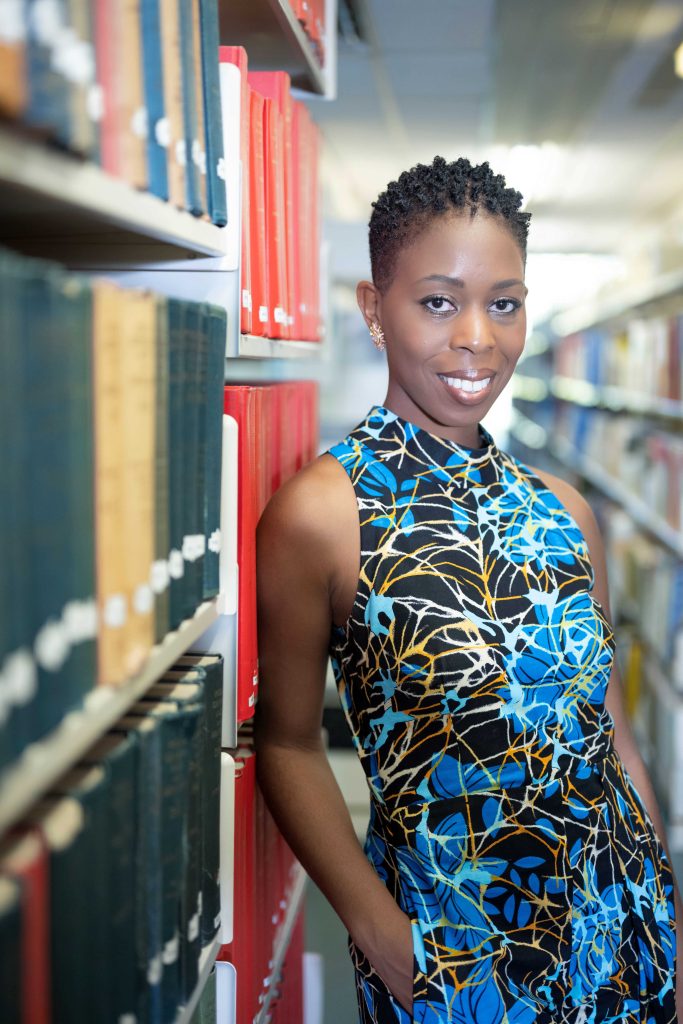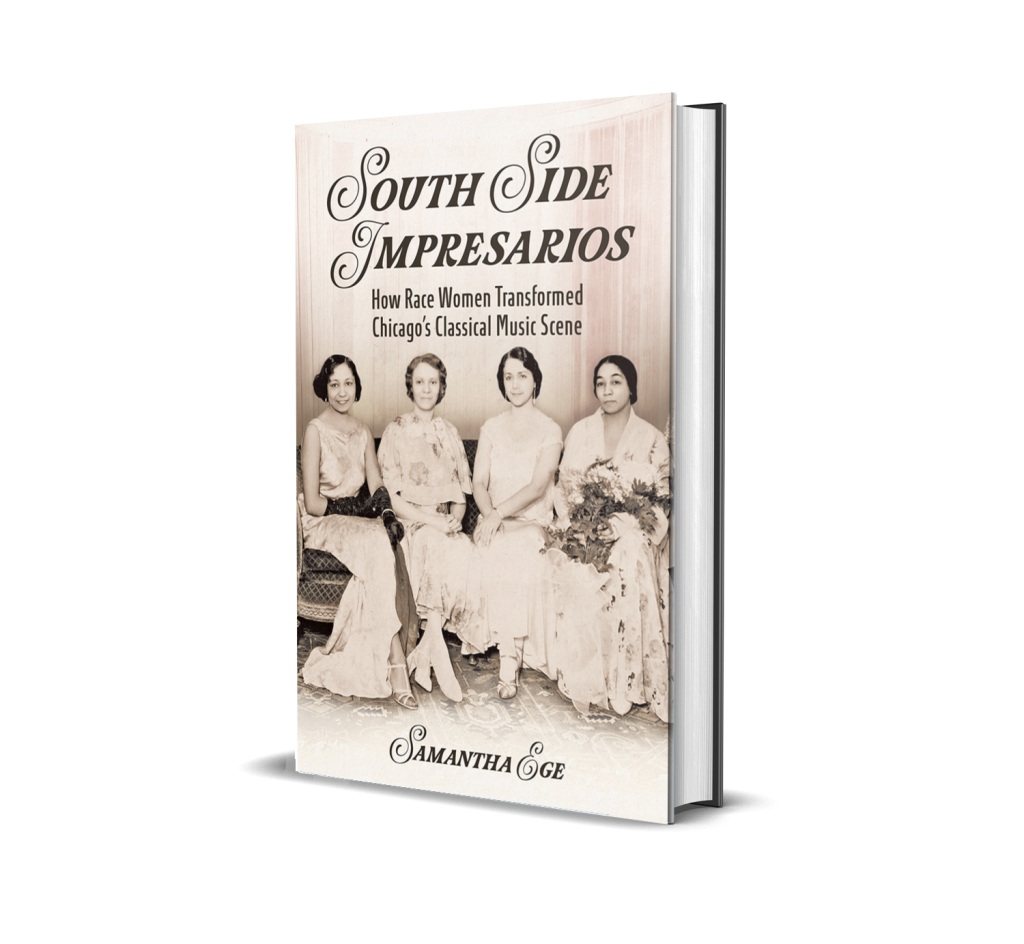Samantha Ege, author of South Side Impresarios: How Race Women Transformed Chicago’s Classical Music Scene, answers questions on her new book.
Q: Why did you decide to write this book?
It all started with Florence Price. I found her story as the first Black woman to achieve national success as a composer so inspiring. But the more I looked into it, the more I realized there was a deeper story to tell, one that involved a whole community of similarly ambitious Black women. This community, however, could often be found working and strategizing behind the scenes. And that’s the story I wanted to dive into because it’s not one that we often get to hear about.
Q: What is the most interesting discovery you made while researching and writing your book?
I loved tracing the connections across music, dance, art, beauty culture, politics, and all of these other facets. For example, learning that Marjorie Stewart Joyner, the first female candidate for the Mayor of Bronzeville (as well as then-president of the Madam C. J. Walker Company), was strongly endorsed by the South Side impresarios was astounding because it further evidenced how these women were operating in multiple spheres. Music-making and political autonomy were deeply entwined, and there is a composition by Florence Price called Chicago (which I delve into) that really shows the interconnectivity of these threads.
Q: What myths do you hope your book will dispel or what do you hope your book will help readers unlearn?
Oftentimes, histories of intellectual and artistic schools tend to revolve around the activity of white men. Maybe there is a token white woman in there, maybe not. But to write of a very real history of classical music in which Black women shaped intellectual and artistic schools in their own image truly shatters a number of misconceptions. South Side Impresarios shows that composers like Florence Price, performers like Marian Anderson, and patrons like Maude Roberts George were not anomalies, but representative of a wider scene in which numerous Black women flourished despite the oppressive social conditions of their milieu. So, my hope is that Black women in classical music today realize that they have a much deeper history than, perhaps, they were previously taught.
Q: Which part of the publishing process did you find the most interesting?
It was really fascinating to go from that stage of swimming in so many ideas and possibilities to arriving at a point where it really feels like you have “The Book.” There would be moments where I’d think, “wow, how did I get here?!” But it’s because of having such amazing support from the press, reviewers, mentors, and friends—it’s a similar story to the one I’ve written. It was so interesting to see how these themes of community that I elaborate on in South Side Impresarios also played out in the publishing process.
Q: What is your advice to scholars/authors who want to take on a similar project?
I found that “The Book” only appeared once I had every single word down that I wanted to say. It was not enough for the ideas to stay in my head. I had one little motivational saying that I came up with: “If you think about it, write about it.” There really is no substitute for that aspect of the work, you just have to write. Not every idea made the final cut, but the practice of writing it all out really helped me understand the direction that I ultimately wanted to take South Side Impresarios in.
Q: What do you like to read/watch/or listen to for fun?
I love reading Afro-futurism; it’s such a special genre in that it tends to be historically grounded in African continental and diasporic pasts while dreaming up these new worlds. Octavia E. Butler’s writings, for me, flow like the clearest stream of water. I would love to see more of her stories on the big screen. But when it comes to what I like to watch for fun, it tends to be very light-hearted: Bridgerton, Gogglebox, SpongeBob SquarePants! And right now, I am really enjoying listening to the music of Willow Smith, Amaarae, Nao, Janelle Monáe, and Camila Cortina Bello.

Samantha Ege is an award-winning researcher and musicologist, internationally recognized concert pianist, and popular public speaker.

